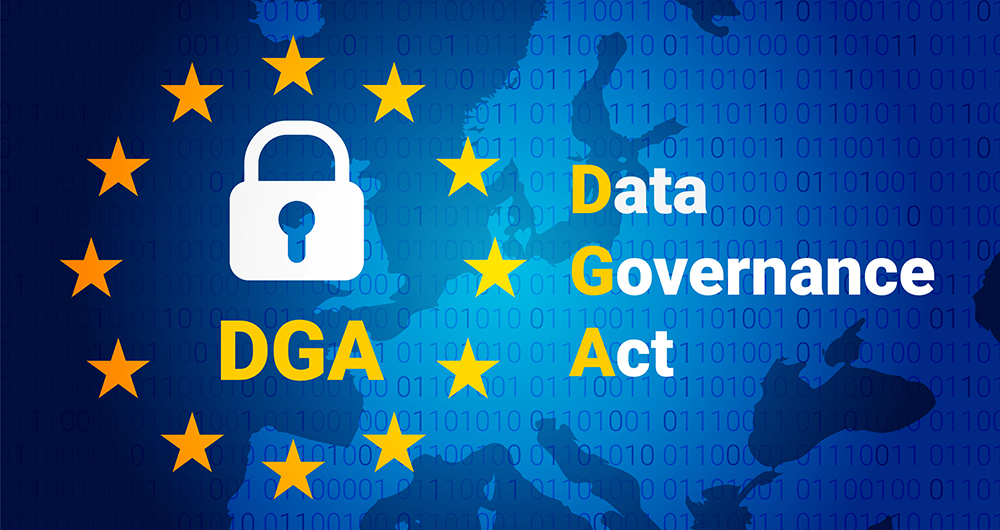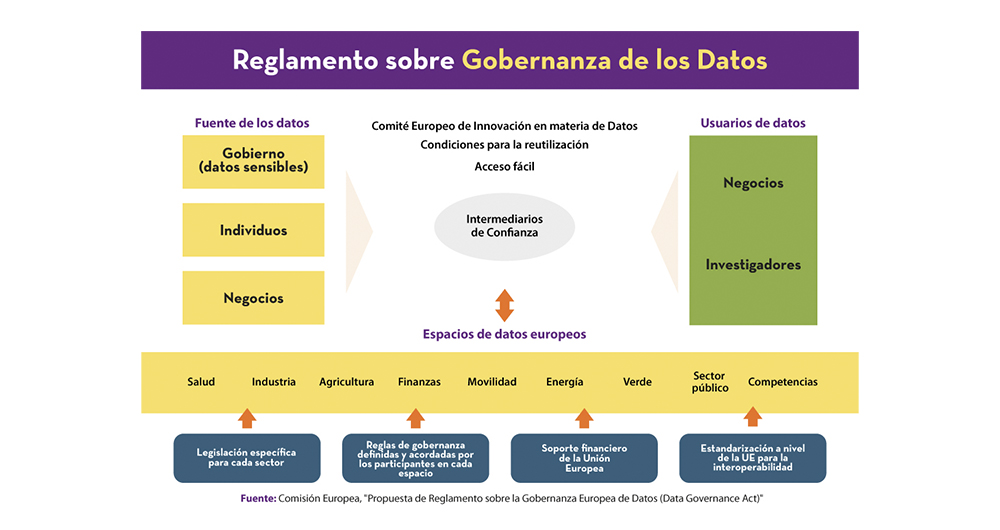The protection of personal data in the draft Data Governance Regulation (Data Governance Act)
Fecha de la noticia: 30-09-2021

Since the initial publication of the draft European Regulation on Data Governance, several steps have been taken during the procedure established for its approval, among which some reports of singular relevance stand out. With regard to the impact of the proposal on the right to the protection of personal data, we can highlight those prepared by some European organizations with the aim of offering their opinion on the regulation proposed by the Commission.
- On the one hand, last July the Economic and Social Council made public its opinion, which stresses the importance of safeguarding fundamental rights, warning that "the adequate protection of these rights is threatened by the distorted use of data freely collected under a consent that is not always obtained following simple procedures".
- On the other hand, the European Data Protection Committee and the European Data Protection Supervisor have issued a joint report aiming to provide the European legislator with guidance to ensure that the future Data Governance Regulation "fully dovetails with EU legislation on personal data protection, thus fostering trust in the digital economy and providing the same protection as guaranteed by EU law." What are the main indications included in the report?
Through their corresponding reports, several EU bodies emphasize the need to ensure the protection of personal data in the future Data Governance Regulation.
Conditions for lawfulness of processing
One of the main difficulties when reusing public sector information is its link to individuals who are fully identified or even could be identified. In these cases, we would be dealing with data of a personal nature and, consequently, the regulations aimed at protecting this fundamental right in the scope of the entire European Union would be applicable: the General Data Protection Regulation 2016/679 of 27 April (GDPR).
In general, both the dissemination of data by public entities and, likewise, the processing carried out by reusers must respect the principles provided for in Article 5 GDPR. Specifically, it is necessary to ensure the minimization of the data, respect the time limitation of the processing or, among other obligations, guarantee its accuracy and integrity, as well as confidentiality. Of particular importance is the prohibition on the use of data for purposes incompatible with those that initially justified the collection of the information, especially if we consider that the data will often have been obtained without the consent of the data subject, when processing is justified for the performance of activities in the public interest.
The dissemination and reuse of public sector information must comply with the requirements and obligations set forth in the General Data Protection Regulation (GDPR).
Pseudonymization and anonymization
The joint report of the Committee and the Supervisor emphasizes that the two techniques cannot be confused and, consequently, the applicable safeguards are different in each case. In particular, this distinction has to be considered by the respective public entity when assessing the feasibility of reuse from a data protection perspective.
- Anonymization means that, because there is no link to the natural persons, the data can be used without being subject to data protection regulations.
- In pseudonymization, on the other hand, it would be possible to re-identify the data subject, insofar as additional information is available to enable this. Therefore, in this case, the processing of the information would be subject to data protection regulations.
Consequently, when pseudonymized data are reused, it will be essential to base the processing on one of the conditions of lawfulness provided for in Articles 6 and 9 of the GDPR, to comply with the principles referred to above, to adopt appropriate security measures and also to respect the transparency obligations referred to in Articles 12 to 14 of the GDPR, the latter condition being particularly important to facilitate the exercise of their rights by the data subjects.
In any case, provided that it is compatible with the main purpose for which the data is used, pseudonymization is certainly a reasonable measure even when there is an adequate legal basis to proceed with the processing of personal data without the consent of the data subject, since it is a solution that strengthens his legal position against the use of the data by a third party. This is shown, for example, in the legal regulation that allows the reuse of health data for research purposes, where one of the essential conditions is precisely that the data must be pseudonymized under certain conditions. This makes it possible to guarantee re-identification when necessary for health care reasons and, at the same time, limits the impact of reuse on the legal sphere of the owner of the information.
In cases where pseudo-animation is used, it is also necessary to comply with data protection regulations
Data sharing providers and data donation
This is one of the main new features of the draft Regulation. As regards providers, the joint opinion of the Supervisor and the Committee emphasizes the need to strengthen controls prior to the start of their activity and, on the other hand, to ensure that they provide adequate information to data subjects, with particular attention being paid to the principles of data protection by design and by default, transparency and purpose limitation. It also stresses the importance of ensuring that such providers effectively assist individuals in exercising their rights under Articles 15 to 22 of the GDPR, as well as the desirability of encouraging their adherence to formalized codes of conduct.
As regards the donation of data for altruistic purposes, given that the applicable legal basis for admitting reuse would be consent, the report maintains that it is necessary to improve the proposed regulation so as to establish more precisely the purposes of general interest for which the reuse of data could be used. Otherwise, the report considers that legal certainty and the level of protection of personal data guaranteed by the GDPR would be jeopardized, in particular with regard to the principle that data shall be collected for specified, explicit and legitimate purposes (Article 5 GDPR).
In order to reuse personal data obtained from the donation for altruistic purposes, it will be necessary to have the consent of the person concerned for the specific purpose.
In short, one of the main reasons justifying the Data Governance Regulation is precisely the need to establish a new regulation for those sets of data over which there are third-party rights that hinder their reuse, as is particularly the case with the protection of personal data. Therefore, although it is of great importance to make a firm commitment to promoting the data-driven economy, it should not be forgotten that the European model is based precisely on the protection and defense of fundamental rights and public freedoms, which necessarily implies that the measures contemplated in the GDPR are at the basis of this model, as the European Data Protection Committee and the European Data Protection Supervisor have recalled in their opinions.
Content prepared by Julián Valero, Professor at the University of Murcia and Coordinator of the Research Group "Innovation, Law and Technology" (iDerTec).
The contents and views expressed in this publication are the sole responsibility of the author.














